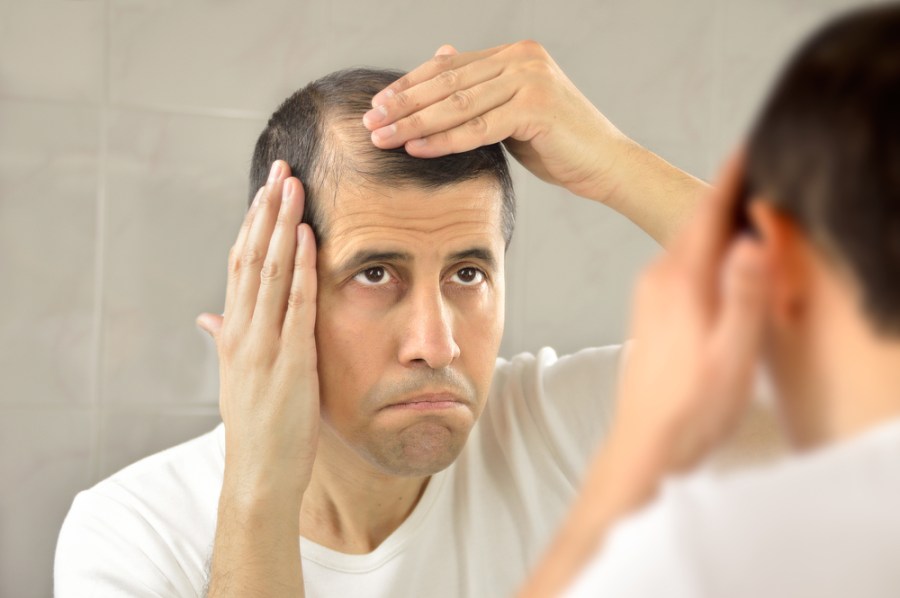How To Repair Your Hair When You Have Adrenal Problems

Many people who experience hair loss determine that hair restoration is for them. If you're interested in exploring your hair restoration options, a dermatologist or a hair loss doctor will help you identify the best hair-restoration treatment for you. This article outlines the important steps in stopping hair loss and the various remedies available today for restoring lost hair.
How to Stop and Restore Hair Loss
If you are experiencing significant hair loss, the following treatment methods may be able to help.
A nutritious and balanced diet is essential for our well-being. Consume foods high in proteins, carbohydrates and minerals to revitalize your body to good health. Supplement your diet with vitamins as they enhance human body cells regeneration. If your body is free from nutrition deficiency your hair will have a stable source of nourishment for continued growth.
2. Avoid excessive Styling
Constantly dry combing your hair causes hair loss, this is a fact that most people ignore. Hairstyles involving ponytails, buns and cornrows exert plenty of pressure on the hair follicles and shaft; if your hair is thinning out, you need to avoid these styles. It is also recommended that you let your hair air dry after you wash it.
3. Detoxify and Exercise your Body
Your blood also hosts metabolic wastes and toxins apart from the other entire essential constituents like blood, nutrients, minerals, hormones or oxygen. The older you become the thicker the mucus lining on your colon becomes. This makes absorption of nutrients and elimination of toxins harder. This effect can be countered through seasonal fasts. Detoxification enhances the body's natural healing and growth mechanisms that help rejuvenate your hair. Detoxification is achieved through:
• Water; taking at least 2 litres of alkalized and ionized water every day helps flush out toxins from your body.
• Whole grain foods; fibre that is contained in whole grain foods go through bowels and unclogs any waste in its path. These grains include wheat, millet, brown rice and oatmeal.
• Herbal teas; a good example of herbal tea is sage tea. Herbal teas help the liver to clean your blood more effectively. Other herbs like dandelion, valerian and milk thistle may not make tasty teas but they also work well with the liver.
• Almond milk, sea salt, lemon juice, cayenne and celery are also highly recommended for blood purification.
Regular exercises increase the body metabolism rate which speeds up the elimination of accumulated toxins. Apart from making your cardiovascular system stronger, they will also increase blood circulation to the head. This helps to stimulate hair follicle growth.
4. Using Hair Growing Products
Upon advice from a dermatologist or a hair loss doctor, you can decide to buy a hair growth promoting product. These products come in form of medicated gels and shampoos. Many marketers bear convincing advertisements for their products and it is therefore important to know the level of craft used to make a particular product effective. A hair growing product should have the following key ingredients-
• Vitamins
• Biotin
• Folic Acid
• Zinc
• Iodine
5. Hair Transplant
This is a permanent solution but not a very cheap one. On average the cost starts at $ 5,000. This procedure involves moving hair from where it is densely populated to where you want it. Hair is transferred one follicle after the other. After the surgery, you will need to take pain medications for several days. Most people are able to get back to work in less than two weeks after surgery.
Conclusion
If you believe that restoring your hair will improve your self-esteem and make you more productive, the above procedures and solutions will guide you into fulfilling your objective. Most of these methods can be used concurrently until you are fully satisfied. Massaging your scalp regularly is also a simple and effective method that promotes blood flow to the head thereby making your hair more nourished.
MORE FROM BLOGLINES
How To Repair Your Hair When You Have Adrenal Problems
Source: https://www.bloglines.com/article/what-you-need-to-know-about-hair-restoration?utm_content=params%3Ao%3D740010%26ad%3DdirN%26qo%3DserpIndex
Posted by: broderickperney.blogspot.com

0 Response to "How To Repair Your Hair When You Have Adrenal Problems"
Post a Comment